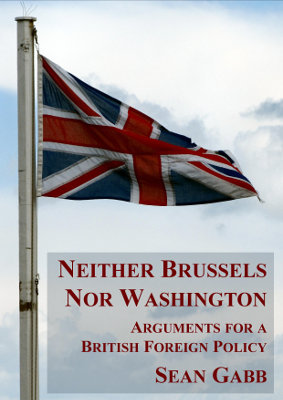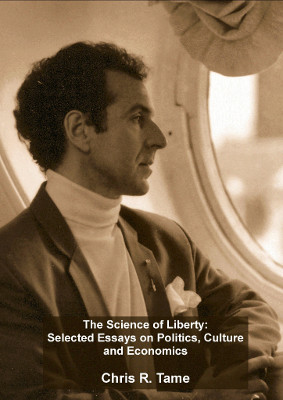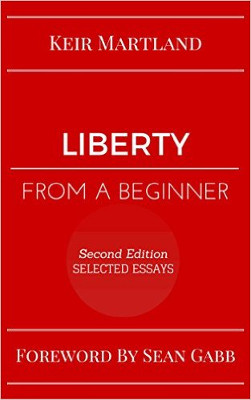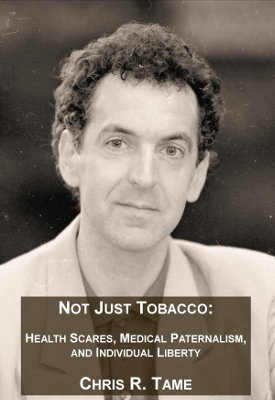
|
THE LIBERTARIAN ENTERPRISE Number 879, July 3, 2016 "What I want to accomplish artistically amounts to nothing more than fulfilling the promise of the American Revolution." —L. Neil Smith Special to L. Neil Smith's The Libertarian Enterprise I spoke earlier with a friend who lives in Bath. He told me how, in 1999, he sat on the Berlin Wall as it was being torn down, and how, last Thursday, he went and voted to leave the European Union. Writing history before it has happened is particularly unwise. We have not left the European Union. We have not even notified our intention to leave, and no one knows what settlement will eventually be reached, or if other member states will decide to leave as well. This being said, it may be that future historians will regard the time bounded by these two events as forming a distinct epoch, different in its tone and assumptions from what went before and what came after. The fall of the Soviet Empire was the opportunity for a return to an order of civilised nation states in Europe, each respecting the others' borders and particular ways of life—but at peace with each other and trading and cooperating as they thought convenient. Instead, that opportunity was wasted. Instead, we got a vast expansion of American power via NATO, and a growth of the European Union and other global institutions. I grant—indeed, I have argued—that the European Union has been to some extent a counterweight to American power. But both have worked along similar lines, which are to undermine the cohesiveness of every European nation state in favour of a single territory, culturally levelled and made safe for multinational corporations. The British vote last Thursday may have brought this dispiriting age to an end. Even if other member states do not leave, the European Union has been weakened. It has been weakened economically, in the sense that Britain has been one of its largest and richest and most powerful members. More fundamentally, it has been weakened morally by the ending of belief in its finality. Counties can not only join, but also leave. Now, rather than say what I think will happen—something I cannot begin to speak about just a few days later—I will say what I want to happen. I want Britain to leave as quickly and as cleanly as can be achieved. I want us to set about a profound restructuring of our institutions to allow a recovery of our lost freedoms and our damaged identity. We need to create an environment for the revival of manufacturing and agriculture and fishing. Unlike the counting of other peoples' money in which the City specialises, this is real economic activity. It gives work and security to the working classes and remakes us as a formidable power. On reflection, I rather hope the Scottish will abandon their fantasy of breaking up the United Kingdom. If that is what they want, that is what they must be allowed to do. There will be benefits for England, I have no doubt. But the Union has been useful to both nations, and can be again. I also hope the Irish will see the logic of their position and leave. There will not be another Cromwellian conquest that only the European Union can prevent. Instead, there are obvious ties of shared blood and shared interests. I would like, before I am eligible to collect such pension as I may receive, to see a Europe of three interlocking zones. There will be Britain, with Ireland, Holland and Denmark as its allies or soft dependencies. There will be Germany, leading the Austrians and Western Slavs. There will be France, with its ties to the other Latin nations. These three zones will form a trading bloc, based on multilateral treaties and mutual respect. They will cooperate in areas of common interest. They will establish a friendly relationship with Russia and its dependencies. They will keep a cautious distance from the United States. In time, these zones may progress, though a process of organic growth—and based on a perception of common external threats—to something like the confederations of the Greek city states. There will be no Maastricht Convergence Criteria, or Common Agricultural Policy, or Europol—no centralised attempt at "ever closer union." But Europe is a common civilisation, and it is worth our looking out for each other. Is this what we shall move towards? Or will Britain become a sort of Airstrip One, ruled by lunatic necoconservatives and authoritarians? It was my worries about this that caused my wobbles over Euroscepticism. But we have made our decision. If I did not sit on the Berlin Wall, I lived in Czechoslovakia shortly after its liberation. I am now reliving, in my own country, the same feeling that everything is possible and that everything may go wrong. I can only hope that we are able to face the challenge of building for ourselves, and leading our European brothers and sisters towards, a better order of things than the one we are leaving.
Donate to the Libertarian Alliance
Copyright © 2016 The Libertarian Alliance, All rights reserved.
This site may receive compensation if a product is purchased |




